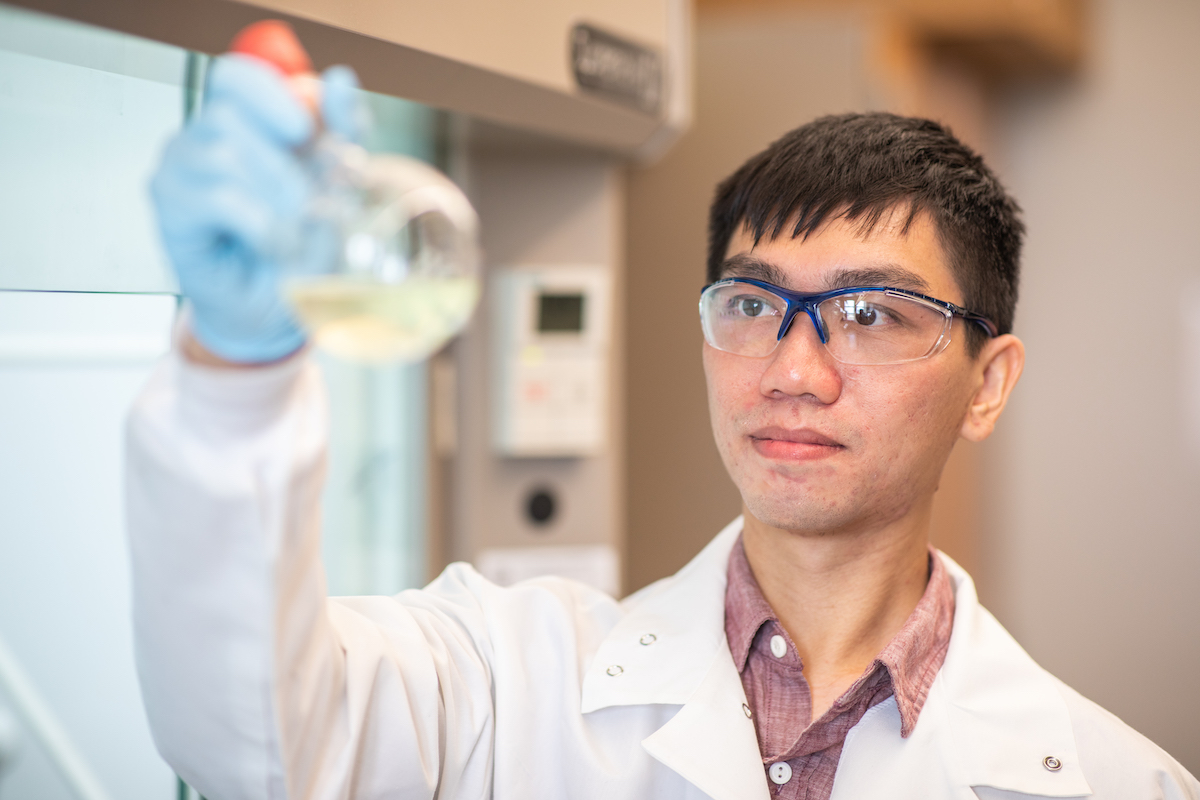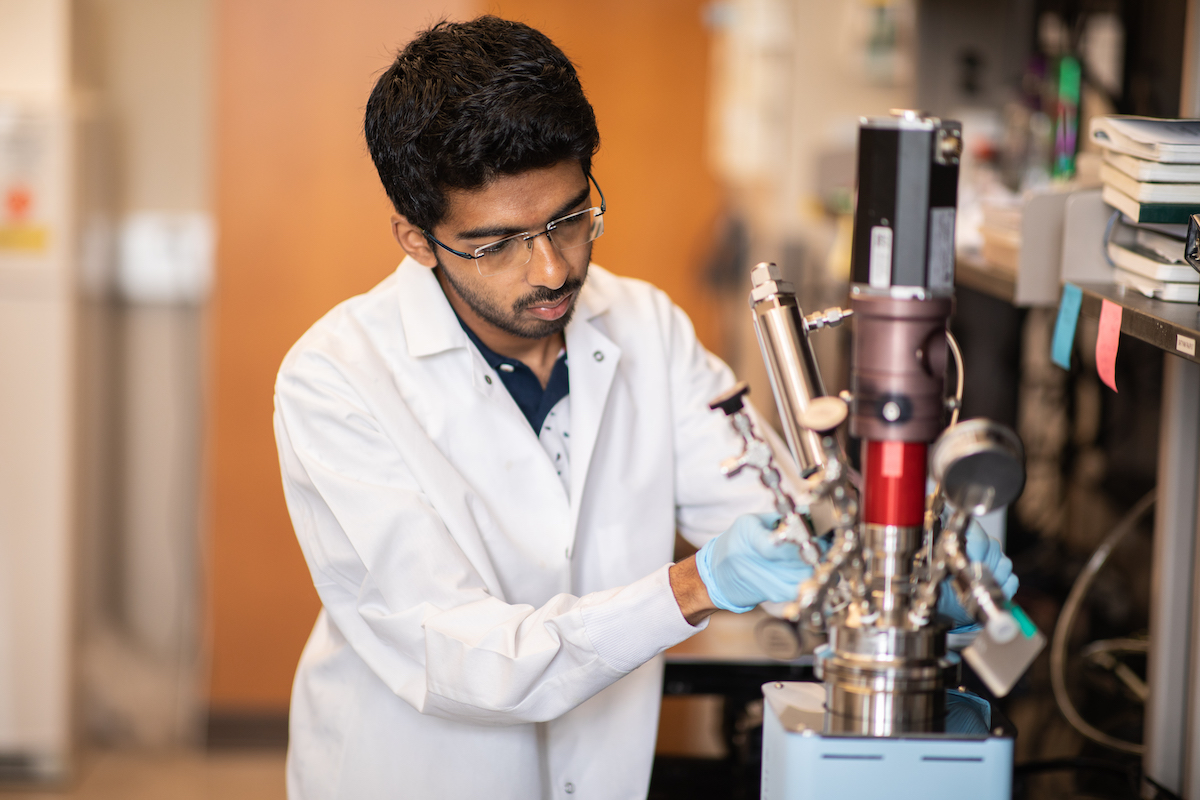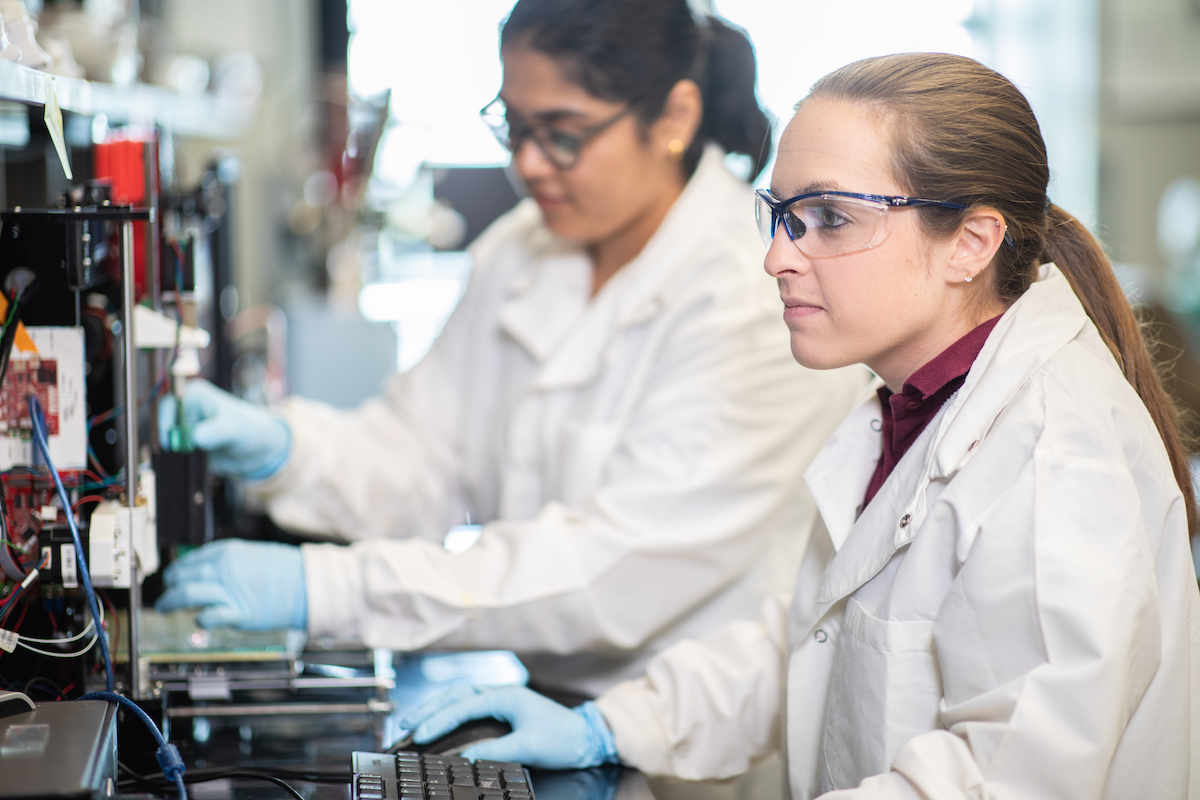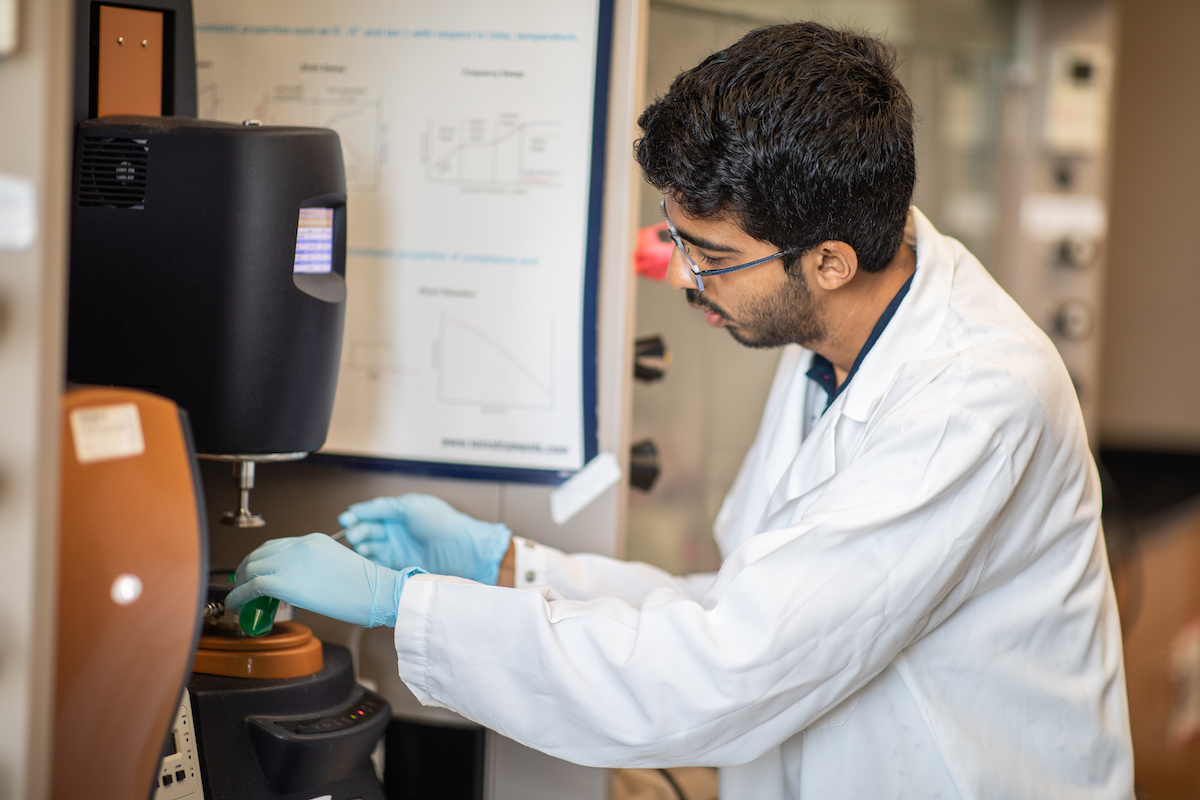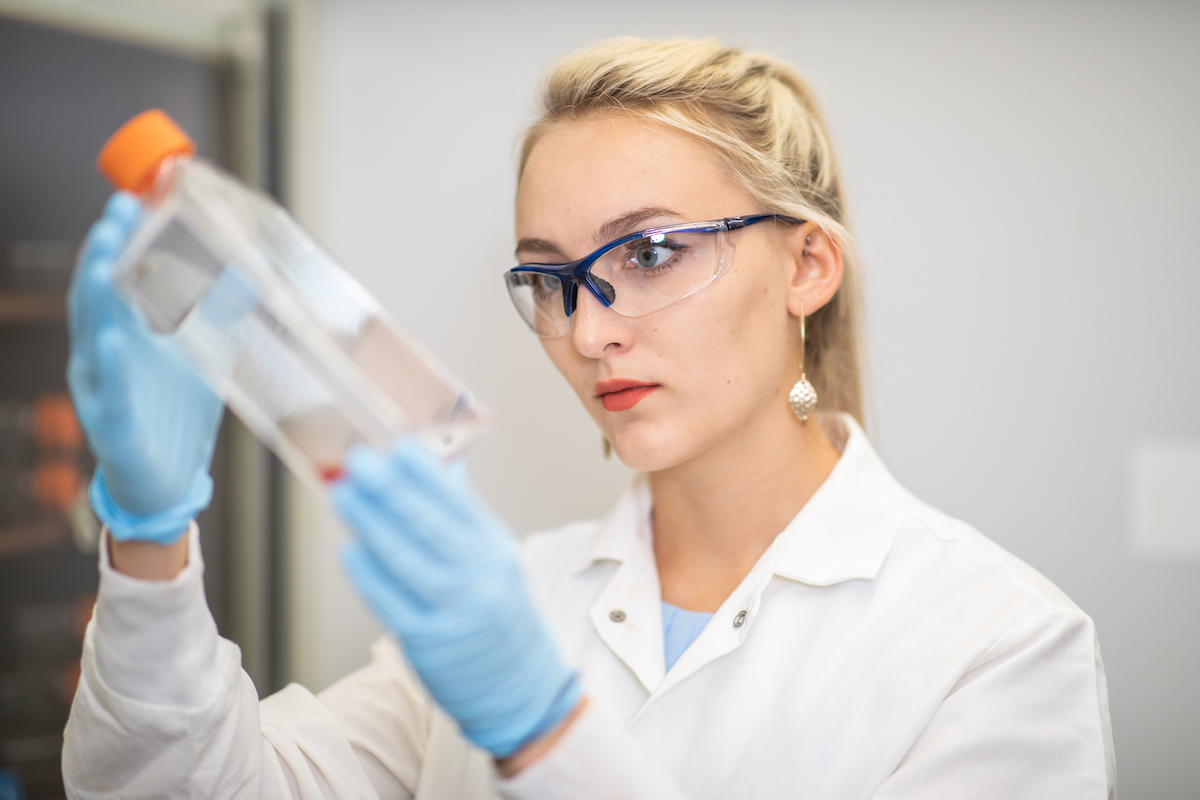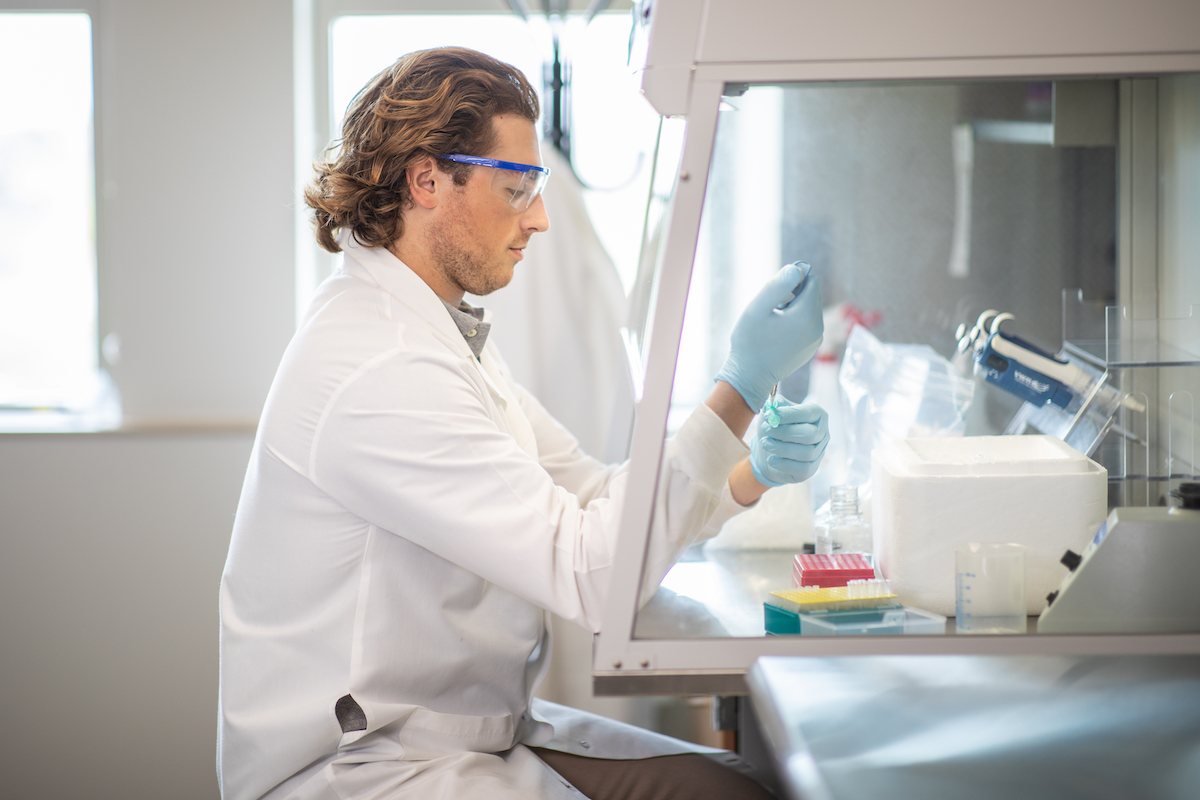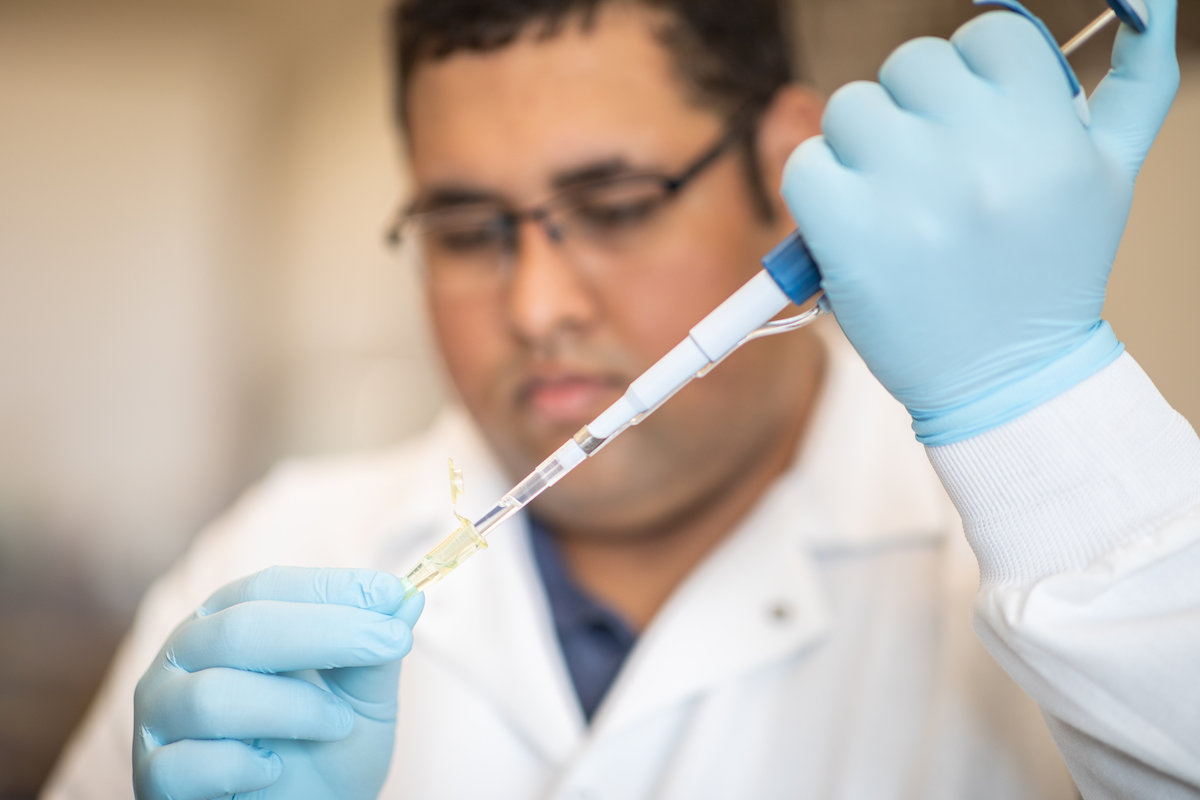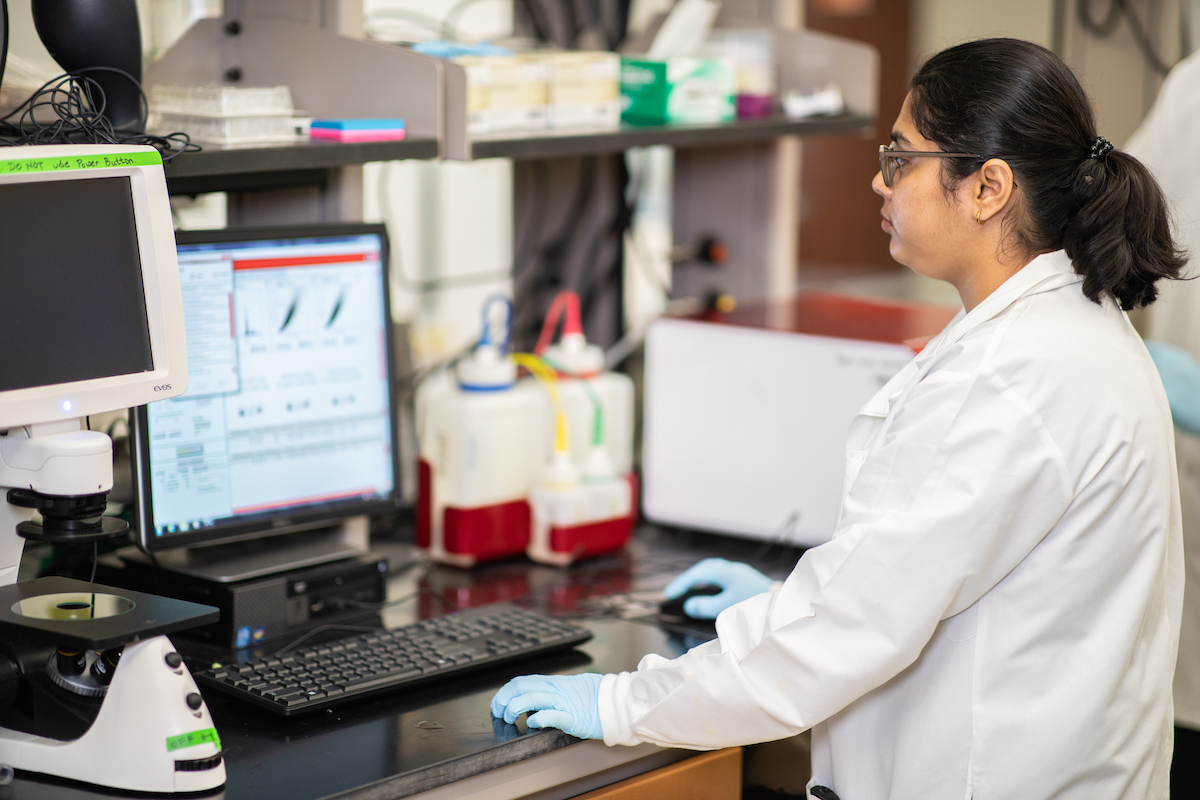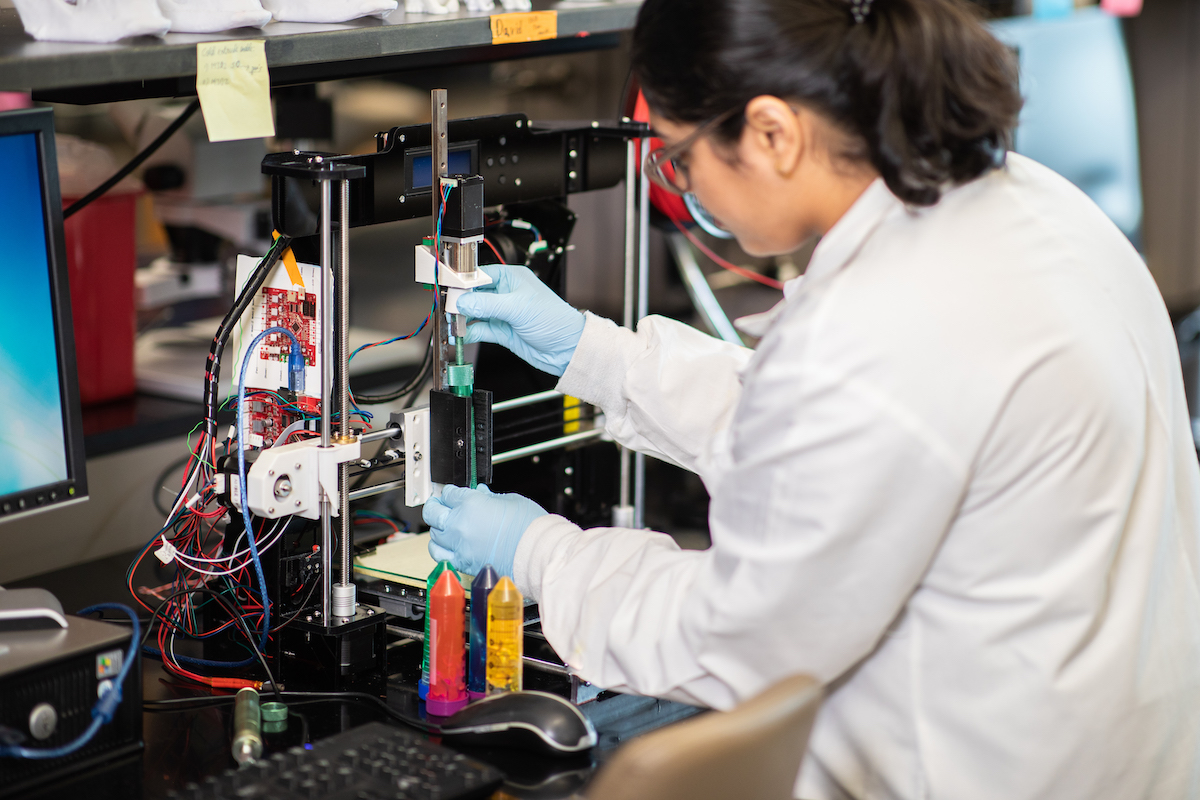Materials Synthesis and Characterization
Chemical and Structural Analysis of Biomaterials
Spectroscopic techniques such as Nuclear magnetic resonance (NMR), Fourier transforma-InfraRed (FTIR), and Gel permeation chromatography (GPC), X-ray photoelectron spectroscopy (XPS), Dynamic light scattering (DLS), Electrophoritic measurements. Structural characterization using electron microscope such as Scanning electron microscopy (SEM), Transmission electron microscopy (TEM), X-Ray Diffractions (XRD), and Atomic Force Miscroscopy (AFM).
Thermal and Surface Analysis of Biomaterials
Thermal properties of polymer network using Thermal gravimetric analysis (TGA), and Differential scanning calorimetry (DSC) are performed. Surface analysis of biomaterials via Contact angle measurements, Surface tension, Permiability, Porosity.
Biomechanical and Rheological Characterization
Uniaxial Compression testing, Tension and torson testing, Rheology and shear testing.
Biological Testing
Cytocompatibility and Biocompatibility Testing
In vitro cellular assay (Direct Contact, Indirect Contact, Test on extract, MTT Assay), Cell Adhesion Test.
Genomic Testing and Analysis
Whole genome sequencing (RNA-seq). Analysis of Genetic and Epigenetic Mechanisms of Toxicity.
Hemocompatibility
Coagulation testing, Percentage hemolysis, Partial Thromboplastin time (PTT), Prothrombin Time (PT), Fibrinogen Assay.
Additive Manufacturing and Prototyping
3D Bioprinting
Using 3D bioprinting to generate complex geometries with enhanced mechanical properties and cytocompatibility
Bioink Development
Developing material formulations with tunable functionalities for designing biomimetic microenvironments through various bio-fabrications techniques.
3D Printing Therapeutic Proteins
Utilizing a unique bioink with 2D clay nanomaterials to sequester various proteins in a 3D printed construct and allowing sustained release to direct specific cell functions.


